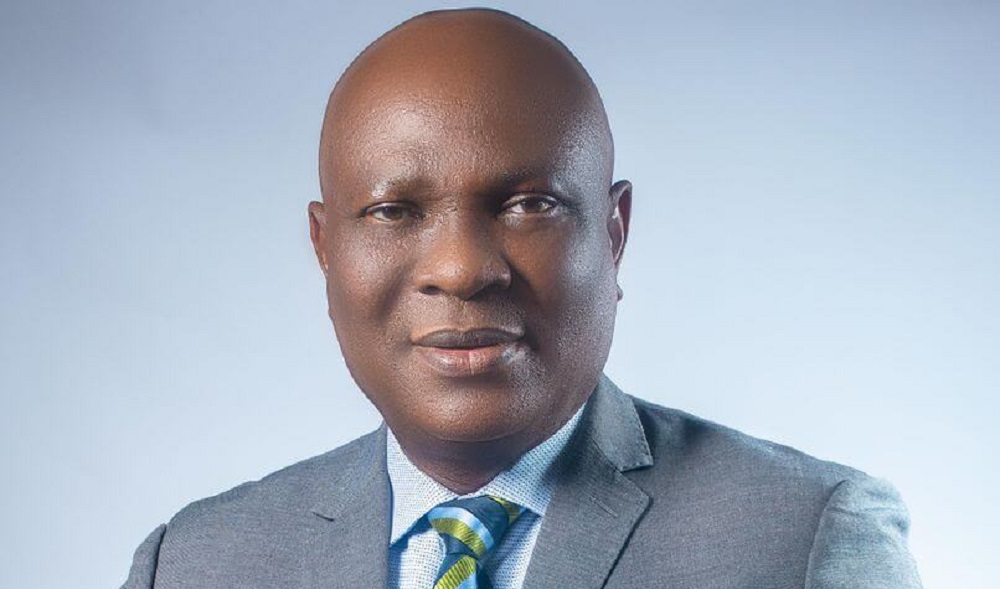House Of Reps Under Fire Over Compulsory Voting Bill
Legal luminaries, university teacher, former lawmakers among other prominent persons, at the weekend, lampooned the House of Representatives over the proposed law on compulsory voting and imposition of N100,000 fine on any eligible citizens that breaches the enactment.
The bill, jointly sponsored by the Speaker of the house, Honourable Tajudeen Abbas, and Honourable Daniel Asama from Plateau State, seeks to amend the Electoral Act 2022 to make voting compulsory for all eligible Nigerians in national elections.
It also intends to empower INEC to develop a system to track voter compliance and manage exemption requests without infringing on fundamental human rights.
The bill, which passed the Second Reading on the floor of the House last week, has drawn criticism from a broad spectrum of the society, including professional bodies.
Speaking, a former president of the Nigerian Bar Association (NBA), Chief Olisa Agbakoba (SAN), strongly objected to the bill because voting is the voluntary act of an individual based on a decision to support a candidate based on conviction.
The foremost pro-democracy and right activist said:
“We don’t need a bill for compulsory voting. Voting is the voluntary act of an individual based on a decision to support a candidate, who in the opinion of the voter will meet the aspirations of the voter.
“Rather than a coercive and ultimately unenforceable law, the real issue our legislators ought to ask is, why voter apathy? The answer is glaring! Voters get nothing by voting! So, the real challenge is for us the voters to be persuaded that, if we vote for A or B, we will get good schools, roads, medicals, pensions, salaries in good time and adequate to cater to our needs.
“These are the dividends we expect and nothing less.
It is not feasible to compel anyone to vote. I will not vote for anyone in spite of a law compelling me. I will plead a conscientious objector and rather go to jail than be forced vote for someone I don’t believe in.
“I do not think it is too late to understand that the way to inspire a voter is to deliver on good governance. This is achievable. There are many good men and women in politics. I urge that they review the bill. And inspire us to vote.”
A former member of the National Assembly, Senator Kola Balogun, also kicked against the proposed legislation, describing the move as nauseating and an affront to the constitutional rights of the citizens. He said it was a misplaced priority and was bound to fail because of its breach of the fundamental rights of Nigerians.
“The attempt by the sponsors of the bill is nauseating, nonsensical and unconstitutional. Citizens’ decision to vote or not to vote is fundamentally a civic right and it is guaranteed by the 1999 Nigerian Constitution as amended.
“This is clearly a misplaced priority. It will not fly.”
Similarly, Professor Chima Onoka said the proposed law amounted to adopting a prescription against an ailment.
“We don’t need it. It is not enforceable. It’s the wrong treatment of an important social problem.
“Citizens don’t mind voting. They just don’t trust the system to allow the truth to manifest in the result.
“Those who manipulate election results, cause glitches, disrupt voting, and steal boxes directly or through agents are not punished.
“Why will the solutions be to further punish citizens who the leaders should rather apologise to? This approach only further damages trust,” Professor Onoka stressed.
A prominent politician and lawyer, Chief Sola Ebiseni, also frowned at the move, stating that, “The Bill leaves so much to be desired, and it’s anti-democratic.”
He added: “The right to vote comes with the concomitant freedom to decide not to vote, which depends on the right social and democratic environment.
“In our democracy, where the choice is limited to political parties with no ideological differences and candidates who by their antecedents have nothing to offer the people, it is not impossible that an average voter may be despondent in terms of participation.
“In any case, the right to vote is constitutional. The decision to exercise it or not cannot be subject to statutory limitations.”
On his part, a former Speaker of the Kogi State House of Assembly, Honourable Abdullahi Bello, described the bill as laughable and another act of legislative absurdity in the making.
According to the one-time acting Kogi governor, “this bill is a laughable effort. It’s the fundamental right of citizens to vote or decide not to. And enacting a law making voting a mandatory act in my view is offensive to the general principles of the basic requirements of human rights.
“In what ways does a citizen who refuses or fails to vote injure the other citizen?
Until one can establish such injuries that are measurably caused by refusal to vote, enacting such a law is a mere waste of reasonable legislative time.
“How about the issue of enforcement? How and in what manner can this law be enforced?
“Assuming that of 120 million registered voters nationally, only 35 million voted, how do you successfully prosecute the remaining 65 million in each of the 36 states, including FCT?
“How do you take out the sick, those who are dead etc from the 65 million that do not vote in order to arrive at the actual or perceived defaulting citizens for investigation and prosecution across the federation? This is yet another legislative absurdity in the making!”
However, in a statement , entitled: In defence of compulsory voting in Nigeria: A case for democratic responsibility, Dr Monday Ubani (SAN), supported the proposed law, which he opined is a bold, necessary intervention aimed at strengthening democracy in Nigeria.
He explained that he took the “minority view” to the discourse “to add a variety of opinions on the view and to provoke reactions.”
He stated: “The proposed legislation to make voting compulsory for eligible Nigerians, with a fine of N100,000 for default, is a bold, necessary intervention aimed at reinvigorating Nigeria’s fragile democracy.
While concerns about state failure and individual liberty are valid, they must be balanced against the larger imperative of collective civic duty and national stability.
“Section 24 of the 1999 Constitution lists civic obligations, including allegiance to the nation and respect for its symbols and values. Compulsory voting enforces one of the most crucial civic obligations, the duty to participate in choosing one’s leaders.
“In a democracy, the legitimacy of governance rests on popular participation. Abstention en masse weakens this legitimacy and erodes the mandate of elected officials.
“Nigeria has witnessed dangerously low voter turnout, often below 30% of registered voters. This emboldens electoral manipulation, narrows the representative base of elected leaders, and leads to poor governance.
“Compulsory voting would reverse this trend, making political office holders accountable to a broader electorate and diminishing the power of vote-buyers.
“Over 20 countries including Australia, Belgium, Argentina, and Singapore have implemented some form of compulsory voting. In Australia, where fines exist for non-compliance, turnout rates exceed 90%.
“These democracies have found that compulsory voting leads to more informed electorate, balanced representation, and a healthier democracy.
“The N100,000 fine is not intended as punishment, but as a deterrent against apathy. Laws without consequences are meaningless.
“Just as we compel citizens to obey traffic rules, pay taxes, and register births and deaths, so too can we compel voting, a process vital to democracy.
“When voting is universal, marginalised voices are brought into the democratic process, especially in rural and economically disadvantaged areas.
“Politicians would now have to appeal to broader interests, rather than micro-target a small voting base. This enhances issue-based campaigns and governance.
“The failure of the state in certain sectors is not justification for citizens to withdraw from the democratic process, in fact, it is a reason to engage more forcefully.
“By voting, citizens can change bad leadership and demand performance. Abstaining only perpetuates the status quo.
“The law can include reasonable exceptions (e.g. health, age, travel, security impediments), so the punishment applies only to willful neglect, not inability.
“A robust administrative mechanism, as seen in Australia, can accommodate this and ensure fairness.
“Compulsory voting is not anti-democratic; it is pro-democracy. It transforms citizenship from a passive identity into an active responsibility. Nigeria’s democracy is still fragile and requires intentional policies that compel participation, broaden engagement, and build legitimacy.
“By making voting a legal duty, we declare that democracy is not optional. It is the price we pay for freedom.”





